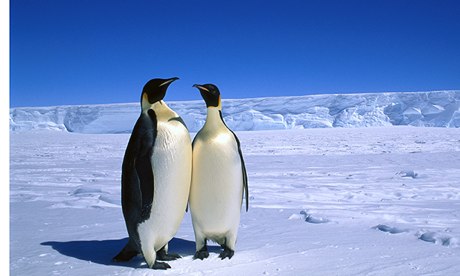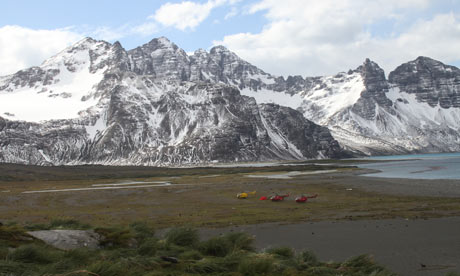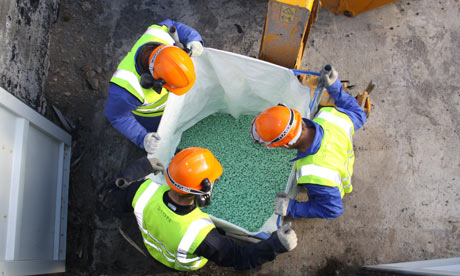Commission
for the Conservation of Antarctic Marine Living Resources negotiations
aim to ban fishing across much of Southern Ocean

Emperor Penguin in Australian Antarctic Territory. Photograph: Pete Oxford/Corbis
Negotiations this week at a meeting of the Commission for the Conservation of Antarctic Marine Living Resources (CCAMLR) will centre on a proposal for a 1.25m square kilometre "no take" zone, which would cover much of the Ross Sea. Another proposal would establish several other smaller protected areas in the seas around East Antarctica, adding a further 1.9m sq km protection zone. A third reserve, proposed by Germany and backed by Britain, would bar fishing from a large portion of the Weddell Sea, which is the site of the British Antarctic Survey's research station, and where Ernest Shackleton's ship Endurance was crushed by ice in 1915.
The prize, says a coalition of 30 conservation groups including Greenpeace and WWF, is the long-term protection of the nutrient-rich seas around the continent, which are home to more than 10,000 unique species – including most of the world's penguins, whales, seabirds, squid and Antarctic toothfish. The seas are also full of krill, the minute shrimp-like creatures that eat algae and plankton and are the main food for whales, penguins, seals, albatrosses and petrels, but are also increasingly used as feed for fish farms and health supplements.
According to some scientists, the two proposed marine protection areas are vitally important because they support a high percentage of all marine life. At the moment just 1% of the world's oceans is protected, with the result that most of the world's fishing grounds have been significantly depleted.
Read More Here


















